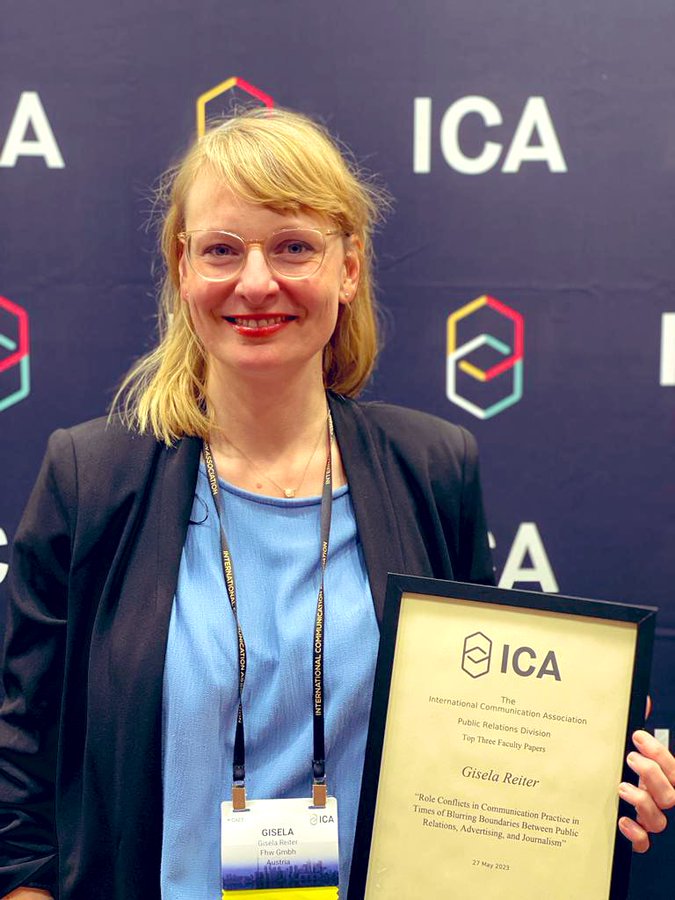Gisela Reiter, researcher at FHWien der WKW, received a prestigious science award for a recent study on ethical challenges in communication practice.
The study identifies unclear roles and systemic challenges as key sources of conflict. The results were presented by Gisela Reiter at the Austrian Communication Day and at the International Communication Association (ICA) 2023 Annual Conference in Toronto. In Canada, Reiter was awarded the ICA’s prestigious “Top Three Faculty Papers Award” for her work. The study is part of the University of Vienna’s “Blurring Boundaries between PR, Advertising and Journalism” project, which is being conducted in cooperation with FHWien der WKW, the Vienna University of Economics and Business Administration and the University of Innsbruck.
The boundaries between public relations, journalism, marketing and advertising are becoming increasingly blurred. One of the 46 respondents from media organizations, companies, non-profit organizations and communications agencies describes the situation this way:
There are days when I am 90 percent journalist. But there are also days when I’m mainly a marketing or sales person. And when an “online storm” threatens, I’m also a community manager or public relations worker.
One voice that illustrates the role diversity of communications professionals.
Role and system conflicts as a challenge in the communications field
Many communicators have difficulties in assigning themselves clearly to one communication field and describe their work as a mixture of different fields. The blurred boundaries between the areas lead to conflicts of interest. According to Gisela Reiter’s study on ethical challenges in communication practice, role conflicts are perceived in different forms:
- personal conflicts of communicators
- internal conflicts in media companies and agencies
- external conflicts of media companies and agencies
In addition to these three types of conflict, a fourth, less obvious but definitely existing conflict type came to light in the course of the study: a system conflict. Here, global trends such as digitalization, globalization or medialization are cited as drivers and causes for the emergence of ethical challenges. The increasing economic pressure in the media industry is also slowly leading journalism into a deeper and deeper crisis.
This is also reflected in the conflict hotspots that were identified at the beginning. For example, there are personal conflicts due to personal convictions and values, a lack of distance from the objects of reporting, or discrepancies with client demands. Internal conflicts arise primarily in the border areas of editorial influence, client demands, and disclosure of paid content. External conflicts arise as a result of outside intervention. This applies in particular to clients who want their company to be portrayed in a positive light.
Teamwork and organizational culture for meeting the challenge
Gisela Reiter and her colleagues conclude that managing these conflicts requires good teamwork and a supportive organizational culture with clear guidelines. Large companies seem better able to manage ethical challenges. The study suggests that sharpening the processes and structures that govern communication practices could help address the challenges of the industry. The more blurred the communication landscape becomes, the clearer the self-identity of the communicators and the communicating organization should become. A course offering developed from the study will use exemplary case studies to raise awareness of ethical boundaries and to discuss and work out different ways of argumentation.
